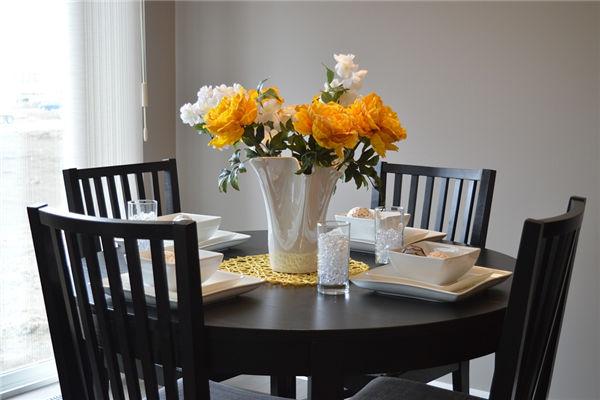Title: The Feng Shui of the Dining Table: What Not to Place on It
The dining table is a central place in a household where family members gather daily to eat. Maintaining a clean and tidy dining table is essential for a pleasant dining experience. The Feng Shui of the dining table also impacts the health and harmony of the family. Not everything is suitable for placement on the dining table, as certain items can disrupt the Feng Shui balance.
In this article, we will explore what items should not be placed on the dining table according to Feng Shui principles.
1. Cacti
Many people enjoy decorating their dining tables with plants or flowers to beautify the environment and create a joyful and relaxed atmosphere. However, placing a cactus on the dining table is generally inadvisable. Cacti are covered in thorns and symbolize toughness and resilience, as they are plants that withstand cold and drought. The dining room environment, on the other hand, should embody warmth and gentleness. The harsh nature of cacti clashes with the dining room’s ambiance. According to the principles of Feng Shui, everything should be in balance. A cactus on the dining table can collide with the home’s energy field, leading to conflicts and increasing feelings of anger among family members, thereby affecting family harmony.
2. Clocks
The dining table is a place for eating and relaxation, while clocks are used to remind people of time, creating a sense of urgency. Placing a clock on the dining table can make diners feel rushed, constantly reminding themselves of the time. This can disrupt the enjoyment of the meal and negatively impact appetite.
Eating should be a careful, slow process. The presence of a clock, symbolizing limited time, is an unwise choice for the dining table. It can also be unwelcoming for guests, leading to an unpleasant experience for both visitors and family members alike.
3. Knives
Some people prefer Western dining styles and place knives on the table for convenience. However, it’s important to note that knives are sharp and can cause injury if touched carelessly. Placing knives on the dining table not only increases the risk of accidents but can also create disharmony within the family. It can lead to minor disputes escalating into arguments, harming familial relationships and disrupting the warm and harmonious atmosphere of the home.
Conclusion
From the above points, it’s clear that certain items should not be placed carelessly on the dining table. Doing so can significantly disrupt the Feng Shui of the home, leading to discord among family members. In Feng Shui, the dining table is not just a physical space for eating; it’s a symbol of family unity and harmony. The objects we choose to place on it can either enhance or disrupt this harmony, making mindful decoration an essential aspect of maintaining a peaceful and healthy home environment.
By understanding and respecting these principles, one can foster a more harmonious and positive energy in the home, enhancing the well-being and relationships of its inhabitants.

